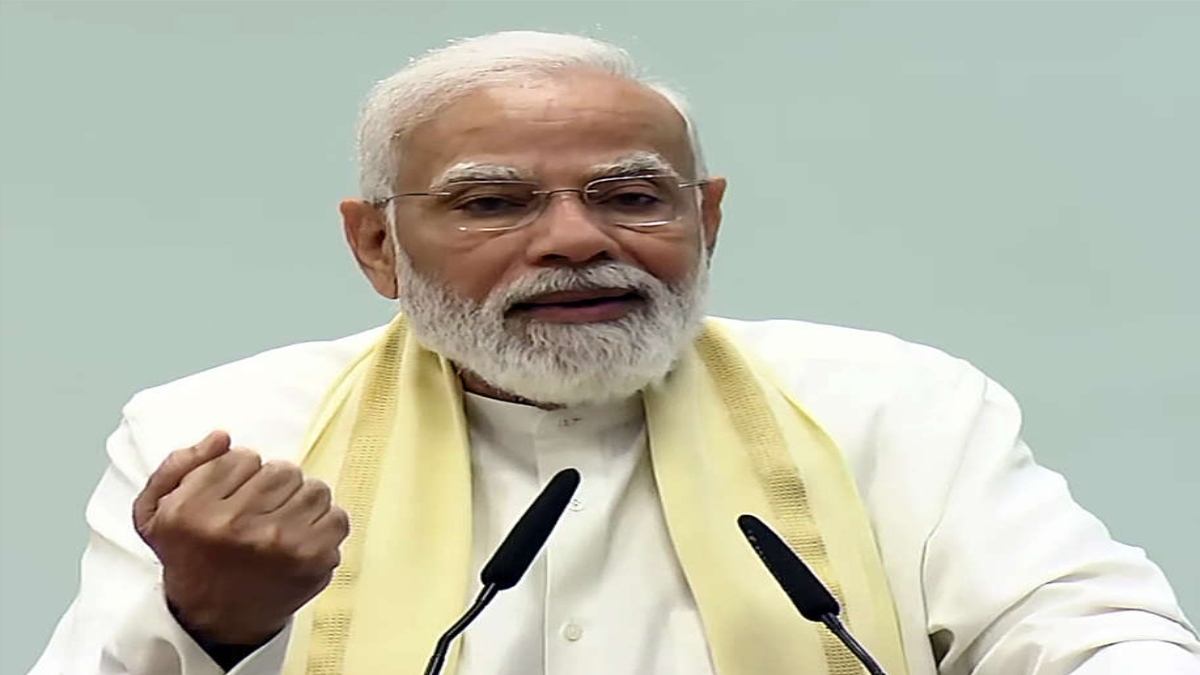


Ahead of Prime Minister Narendra Modi’s visit to Lumbini in Nepal on 16 May, India has said that the bilateral mechanisms are the best way forward to deliberate on the boundary issues and that they should be discussed in a responsible manner without their “politicization”.
Foreign Secretary Vinay Mohan Kwatra on Friday made these comments while replying to a question on the bilateral dispute between India and Nepal. The question was whether the boundary dispute will figure in the talks between PM Modi and his Nepalese counterpart Sher Bahadur Deuba at Lumbini. While briefing the media on PM Modi’s upcoming Nepal visit, Kwatra said, “In so far as the border discussions between the two
countries are concerned, as you all know, there are established bilateral mechanisms which exist between them. We have always maintained that they are the best way forward in discussing those issues, discussing in a responsible manner without really politicisation of those issues. That is the subject which will essentially be in the score of those established bilateral mechanisms.”
“The comments made by the FS are important as they have come just two days ahead of PM Modi’s upcoming visit to Nepal. The remarks also amount to a message to Kathmandu that there should not be any attempt to politicise the border issues whether it is from certain elements in the ruling dispensation or in the opposition there,” sources told The Daily Guardian. “What India cannot lose sight of is the fact that China is always there to seize the opportunity to whip up anti-India sentiments in Nepal and the border row provocation has undeniably been its handiwork in the past as well,” sources said. “With Prime Minister in the country, there might be some elements who could try and make unnecessary and provocative statements regarding the border issues at the instance of China just to embarrass the Indian leader,” sources added.
It is in this context, Kwatra’s remarks on the border issues between India and Nepal assume great significance. “Even the officials and the ministers in the Nepalese government have been given an implicit message that there should not be any public comment on the border issues when PM Modi visits there,” an official told TDG. Moreover, the message to Kathmandu from New Delhi is also that only the bilateral mechanism is there to deal with this issue so any attempt to raise the border row will not be entertained and encouraged, sources said.
During his New Delhi visit, Deuba had discussed the Kalapani border dispute with PM Modi. He had urged PM Modi to resolve it through the establishment of a bilateral mechanism then. “So, now a bilateral mechanism is in place, which will discuss it at an appropriate time and opportunity,” officials said.
In fact, Kalapani boundary issue erupted in November 2019 after the revised political map of India depicted the triangular area of Kalapani-Lipulek-Limpiyadhura within the territory of Uttarakhand. In a tit-for-tat move, Kathmandu responded by placing a revised political map of the country in the national insignia of Nepal.
In the past also, India urged Nepal to avoid politicization of the boundary dispute. The then Foreign Secretary Harsh Vardhan Shringla briefing the media after the talks between PM Modi and Deuba had said, “There was a general understanding that both sides needed to address this in a responsible manner through discussion and dialogue. In the spirit of our close and friendly relations, politicisation of such issues should be avoided.”
General Naravane, who was then the army chief, had a few months ago also hinted at China’s role in prodding Nepal. “There is a reason to believe that they might have raised this problem at the behest of someone else and that is very much a possibility,” he was quoted as saying, while addressing an online conference after the border row erupted.
Meanwhile, the Foreign Secretary said Prime Minister Narendra Modi’s talks with his Nepalese counterpart Sher Bahadur Deuba at Lumbini in Nepal on May 16 will have a comprehensive agenda to further expand cooperation in multiple areas including hydropower and connectivity.
In Lumbini, the prime minister will visit the sacred Mayadevi temple and deliver an address at a Buddha Jayanti event organised by the Lumbini Development Trust. Modi and Deuba, who visited India last month, will hold extensive talks.
“The fact that a return visit is taking place in such a close succession is a reflection of the closeness of our high-level exchanges as well as of the upward trajectory in our mutually beneficial partnership,” Kwatra said.
The foreign secretary said Modi and Deuba will build on their productive conversation in Delhi last month with a view to further expanding the shared understanding and cooperation in multiple areas including hydropower development and connectivity.
He said the visit will “reaffirm” India’s commitment toward ties with Nepal and demonstrate the priority that New Delhi attaches to the neighbourhood.
“The conversations between the two leaders will pick up from where they left off last month when Prime Minister Deuba visited here and would no doubt cover all elements of our bilateral engagement whether it is development partnership, whether it is assessment and stock-taking of how connectivity projects are doing, what more can be done to connect the two societies of South Asia and also aspects related to hydropower cooperation, trade and investment,” Kwatra said.